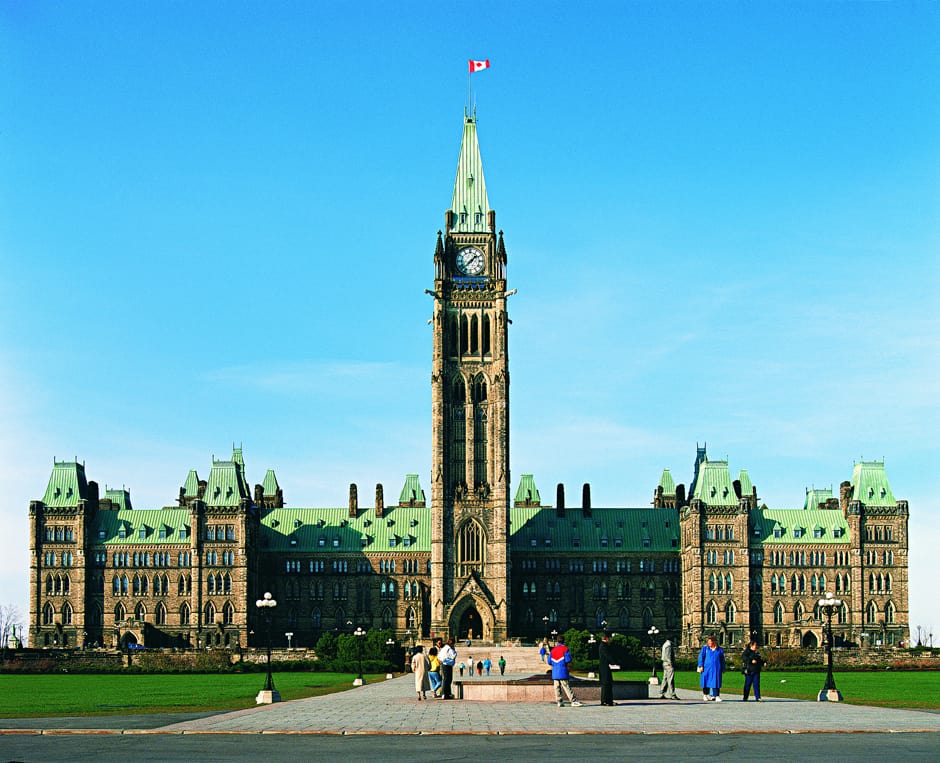The Anti-Terrorism Act 2015, also known as Bill C-51, officially became Canadian law on June 18, 2015 after six months of deliberation. The bill was born out of the October 2014 shooting incident on Parliament Hill in Ottawa, when Canadian soldier Nathan Cirillo was shot and killed by Michael Zehaf-Bibeau, a 32-year-old Montréal man, while Cirillo was on ceremonially sentry duty at the Canadian National War Memorial.,
Following the incident, Prime Minister Stephen Harper declared the incident a terror attack and vowed to take steps in the future to bolster Canada’s abilities to identify and neutralize potential threats to the country’s security.
In response, the government proposed Bill C-51 on January 20, 2015, the most comprehensive reform of Canada’s security policy since the 2001 Anti-Terrorism Act became law following 9/11.
Sweeping and controversial, Bill C-51 has received a lot of exposure through social media, traditional news outlets, blogs, and within academic circles. The bill includes a multitude of amendments to the Criminal Code, the Canadian Security and Intelligence Service (CSIS) Act, and the Immigration and Refugee Protection Act, as well as new laws to increase the power and scope of Canada’s security network. The new laws are laid out in the Security of Canada Information Sharing Act and the Secure Air Travel Act.
Lack of clarity
Of particular significance are the Canada Information Sharing Act, and the amendments to the Criminal Code and the CSIS Act. Both have stoked concern for making use of intentionally vague language which is open to broad interpretation, which some critics believe could lead to abuses.
The Canadian Information Sharing Act grants governmental institutions with the authority to share information — including personal information — about activities that allegedly undermine the security of Canada. However, the act does not specifically define what constitutes terrorist activity.
Paul Finch, a civil liberties advocate and treasurer of British Columbia’s Government and Service Employees Union (BCGEU), takes issue with that lack of specificity, noting that ‘“targeted activities’ are too broadly defined, and are based on whether they undermine the sovereignty, security or territorial integrity of Canada, or the lives and the security of the people of Canada”.
According to Finch, the issue is defining what exactly constitutes a ‘threat’ to Canada’s security. The vague interpretation of this statement allows for many different types of activity to be classed as potential threats, including events deemed to interfere with Canada’s financial and economic stability — namely, social protest, environmental activism, or labour unrest.
It would appear that the vagueness of the wording allows the government to conduct surveillance on Canadians with unprecedented ease and without citizen consent. If a department deems there is credible evidence of ‘terrorist activity’, they are allowed to conduct surveillance on citizens and share that information with all levels of government. The concern for Finch is that the act will “legitimize the mass collection of warrantless surveillance data on Canadian citizens” without proper consent. This coupled with insufficient checks and balances to insure that the information spread is reliable is a “serious cause for concern.”
The changes to the Criminal Code are in line with many of the Bill’s other objectives, incorporating new language to quantify terrorist activities for the sake of counteracting terrorism. This new language includes criminalizing the avocation and/or promotion of terrorism and an amendment to curb the spread of terrorist propaganda. The Bill also changes the conditions, which govern whether or not someone can be detained without evidence, and probable cause for arrest, both of which lower the legal threshold for jailing suspected terrorists drastically.
Similar to criticisms of the CSIS Act, the lack of clarification in the amendments to the Criminal Code has not gone unnoticed. “[The] wording is too broad and vague, and the conditions by which people would be charged or held too uncertain.”
Potential breach of charter rights
The amendment to the CSIS Act facilitates the transformation of the agency from one of intelligence gathering to one that actively engages in anti-terrorist activities domestically and internationally. According to the Canadian Bar Association’s (CBA) report on the Bill, the amendment would allow CSIS to “employ undefined measures within or outside of Canada to reduce a threat to the security of Canada.”
The responsibility to determine what constitutes a reasonable course of action in the effort to make Canada more secure ultimately lies with the government and, more directly, CSIS. The agency now only requires a warrant to act against suspected terrorists if they deem it necessary, and only when the action taken will violate a charter right or Canadian law. However, anything the agency does not deem unlawful, or to be a violation of the Charter, does not require a warrant under the new legislation.
The CBA notes that this is the first time any act has allowed for the potential breach of a charter right, as these rights are normally understood to be inalienable. The CBA’s report notes, “judicial warrants for search and seizure are meant to prevent, not authorize Charter violations.”
Academic and intellectual freedom
How the Bill will affect students specifically remains unclear; however, as third year peace, conflict, and justice student Mariam Jammal points out, those students who are actively engaged in social, environmental, or political justice may be easy targets.
“We do not have enough experience to be aware of what types of activities we should avoid, or how to avoid them. Without knowing it, we could be placing restrictions on our future selves,” said Jammal. “We may not be the direct target, but that doesn’t mean that we wont do something ‘stupid’ that could come back and bite us in the future.”
Finch is inclined to agree, but added that the Act threatens “academic and intellectual freedom” due to the threat of surveillance, potentially hindering a students ability to conduct thought provoking, or original and independent research, in topics deemed potentially threatening under the guidelines of the Act.
The Act, in full, is available on the government website.


